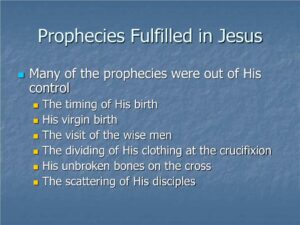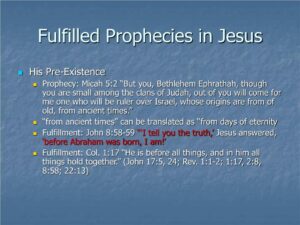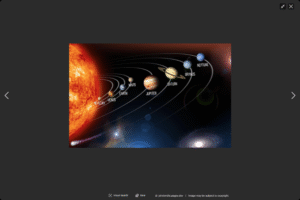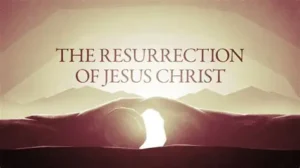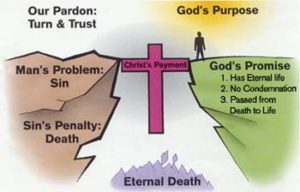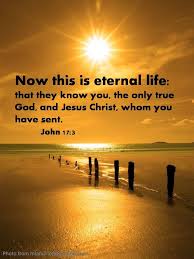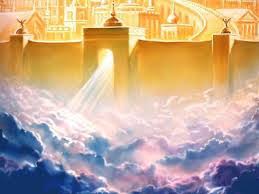My friends, fellow sojourners on this fragile, pale blue dot adrift in a vastness of creation, a cosmos of unimaginable scale – let us gather our hearts to ponder a divine mystery. This is an echo from the ages, a question that has long stirred or troubled the deepest chambers of the human soul.
Why did God, in His infinite wisdom, ordain to create mankind, possessing full foreknowledge that not all of His image-bearers would come to behold the glory of His majesty, and that, in fact, countless multitude would, by their own willful rebellion and decision, turn away from their Creator, and choose the dreadful fate of the lake of fire, prepared for the devil and his angels?
This is a question that may daunt the faint hearted and transcends the calculus of mere feeling. We must approach it with trembling reverence, acknowledging that the “why” of God’s eternal decree is, in its fullness, locked in the counsels of His own inscrutable will. “How unsearchable are his judgments and how inscrutable his ways!” (Romans 11:33 “O the depth of the riches both of the wisdom and knowledge of God! how unsearchable are his judgments, and his ways past finding out!”). He has revealed Himself to us and from the tapestry of the Bible, we can discern threads of a majestic answer, woven not to merely satisfy our every curiosity, but to lead us to worship.
The ultimate end of all God’s works is the manifestation of His glory – the radiant display of the sum total of His perfections. His justice is as much an attribute of His glory as His mercy. In the eternal state, the redeemed will behold the beauty of His grace with awe; but the display of His holy wrath against sin, His righteous judgment, and the absolute vindication of His moral government will also form a part of that terrible as well as the glorious panorama. The lake of fire stands as an eternal, sobering testimony to the infinite worth of God’s holiness and the true, damnable nature of sin. It declares forever that He is not a God who sweeps iniquity under the rug of the universe, but a God whose hatred of evil is as everlasting as His love for righteousness.
Furthermore, the very existence of the lake of fire serves to magnify, by infinite contrast, the glorious grace of the Cross. We cannot fully apprehend the depth of our salvation until we understand the horror from which we have been rescued. The mercy that spared us shines with incalculable brilliance against the backdrop of the justice we deserved. The Lamb who was slain becomes infinitely more precious when we realise that He bore the full fury of that divine wrath on our behalf, drinking the cup of judgment so that we might drink the water of life.
In His sovereign wisdom, God deemed it a greater glory to create a world where genuine, willing love could flourish—even at the cost of allowing the possibility of rejection and its eternal consequences -than to create a world of automatons or a reality from which the stark realities of justice and mercy were absent. The genuine faith and love of the redeemed, who worship Him not out of robotic compulsion but from hearts truly set free, is a treasure of such worth in His sight that it was part of His eternal purpose in Christ.
Therefore, we do not peer into this mystery to accuse the Potter, but to humble ourselves before Him. We are standing on holy ground. The answer is not a simple proposition to be dissected, but a Person to be trusted. We see through a glass darkly, but we see the Cross. And at the Cross, we find the ultimate convergence of God’s absolute sovereignty, His terrifying justice, and His merciful, self-sacrificing love. There, we are compelled to lay down our demand for full comprehension and instead fall down in worship, confessing that the Judge of all the earth will indeed do right (Genesis 18:25c “Shall not the Judge of all the earth do right?”), and that His ways, though past finding out, are perfect. The task is not to justify God to man, but to trust Him, to proclaim His gospel of rescue, and to marvel that from the same lump of fallen humanity, He has prepared vessels of mercy for glory.
Thus, the question of “Why did our Sovereign God, in His infinite wisdom and perfect love, choose to create mankind, knowing that not all would come to know the glory of His Majesty. And in fact, many will end up forever in the lake of fire joining the devil? intrinsically asked, whether an eternally tormenting punishment fits the character of a loving God, especially for “finite human sins” – as seen from human’s perspective? If God is truly loving and sovereign, why would a just and holy God allow any soul to be lost, or to share in the final judgment prepared for the devil and his angels? The idea of infinite punishment for “finite” sins seems disproportionate to many.
The world whispers that this is a confutation. However, God’s Word reveals this not as a flaw, but as the very stage for the greatest display of His glory and grace the universe will ever know! And how could we truly comprehend the breathtaking depths of His mercy if there was no such thing as judgment? How could we stand in awe of His glorious grace if we had not first been lost in sin? God created us for His glory and to know Him and find our ultimate satisfaction in Him! He desired to manifest the full spectrum of His Divine character – not just His love, but also His justice, not just His mercy, but also His holiness.
May this sacred inquiry lead us not into inculpating God unfairly, or be in despair, but into deeper awe of God’s love, justice, and the grace offered to all through Christ. It is not a puzzle to be solved with a simple formula, but a depth to be plumbed with reverence, acknowledging the limits of human understanding before the infinite wisdom of God.
And may we ever remember: God created us not for destruction, but for divine communion, now and forevermore.
A theological exploration must consider several interconnected truths revealed in Scripture. One must hold in tension the deus revelatus (God as revealed) and the deus absconditus (the hidden God), acknowledging that our finite intellects grapple with the infinite depths of the Divine Counsel.
This question with its different variants, weighs heavy on every heart that has ever considered the love of God and the reality of eternity. This is a question that touches on a mystery that has stirred human hearts across the ages, one that lies at the heart of theodicy – the theological and philosophical endeavour to reconcile the existence of evil and suffering with faith in an omnipotent, omniscient, omnipresent and omnibenevolent (all wholly good) God.
These are not just intellectual puzzles; they are deeply emotional and is a spiritual burden for many – how a God of perfect love could allow souls to walk the path of destruction – to suffer in the lake of fire for all eternity. And yet, we must consider this mystery with both humility and hope.
To the one who raises this question with all sincerity, I offer this further reflection: suppose you stood now in the radiant joy of heaven – in the very presence of your Creator. Suppose you were experiencing and tasting the fullness of the promise found in 1 Corinthians 2:9 “But as it is written, Eye hath not seen, nor ear heard, neither have entered into the heart of man, the things which God hath prepared for them that love him.” Would you, in that moment of perfect peace, say to the Lord God, “I would rather have never been created, because others chose not to be here”? Would you ask that you – and all of humanity – never exist, just because some would reject Him? Or would you not?
The skeptical objection posits that it would have been preferable for God to refrain from creating humanity altogether, given His foreknowledge that many would face eternal condemnation in the lake of fire. Yet, this assertion begs a foundational question: By what authority is such a judgment made? In raising this objection, does the skeptic not unilaterally invalidate the profound gratitude of those who rejoice in their existence and yearn for eternal communion with their Creator?
Furthermore, upon what basis can it be definitively claimed that a world devoid of humanity is superior to one in which every soul is granted a genuine opportunity to respond to Divine love? We witness, in fact, the multitude of the redeemed – countless millions who have responded in faithful obedience and received the gift of eternal life. The skeptic’s preference for a non-human world rest upon no higher authority than his own subjective opinion; it is, in essence, a personal sentiment masquerading as a moral axiom.
We can affirm, by contrast, that humanity was conceived by a sovereign act of God’s free will, designed for the very purpose of receiving and reflecting His glory. The charge that God acted immorally in creating, knowing the potential for sin and its consequences, is therefore vacuous. The Divine economy is one of perfect justice, wherein every moral agent is afforded an equitable opportunity to choose life. God says, “For God so loved the world, that he gave his only begotten Son, that whosoever believeth in him should not perish, but have everlasting life.” John 3:16. It means WHOSOEVER – anyone and everyone who wishes to believe.
The only way for God to be truly fair to all His human creatures would be to allow each of them the same opportunity to choose their own final destination. Though God foreknows who will turn away, such knowledge does not negate meaningful human choice.
A key to understanding predestination is found in Romans 8:29a: “For those God foreknew, he also predestined…” This means that God’s predestination is not an arbitrary decree. It is not a matter of God saying, “Tom will perish, and Harry will be saved,” without reference to their will. Instead, God’s foreknowledge – His perfect awareness of who would freely respond to the Gospel – is the basis for His act of predestining them to be conformed to Christ’s image.
Indeed, no ground exists for the skeptic to maintain that a world without humanity is preferable to one which manifests the full spectrum of God’s justice and mercy. It is God’s own attributes – His omniscience, His impartiality, and His perfect love – that qualify Him alone to adjudicate which world is, in fact, the best of all possible worlds. When Scripture is rightly understood, it presents a coherent and consistent portrait of a morally perfect Deity, whose decision to create humanity stands not as a stain upon His character, but as a glorious manifestation of it.
The joy of heaven is not merely the absence of suffering, pain and sorrow – it is the unending, overflowing abundance of God’s presence. And the truth is: many will embrace this Divine gift and the tragedy of those who reject Him does not erase the glory of those who freely receive Him.
If God had refrained from creating humanity out of sorrow for those who would reject Him, He would also have withheld the gift of life and eternal communion from those who would joyfully choose Him – including you. Would it be just for those who reject God to also steal from or deprive you of your opportunity to love Him and dwell with Him forever?
God, in His perfect justice and love, has given each accountable soul the freedom to choose. To deny that choice would be to deny true love – for love cannot be coerced. The lake of fire is the final destination chosen by those who say in their hearts, “We choose to continue in sin, rebellion and not have this God to rule over us.”
Jesus said in Matthew 25:46: “And these shall go away into everlasting punishment: but the righteous into life eternal.” emphasising that the moral choices made in this life hold everlasting weight.
The framework for response is constructed upon several foundational pillars of theology.
- God’s Primary Desire is Salvation, Not Condemnation.
- Key Scripture: 1 Timothy 2:3-4 “For this is good and acceptable in the sight of God our Saviour; Who will have all men to be saved, and to come unto the knowledge of the truth.”
Also, 2 Peter 3:9 “The Lord is not slack concerning his promise, as some men count slackness; but is longsuffering to us-ward, not willing that any should perish, but that all should come to repentance.” The final responsibility for damnation rests on the individual who rejects the grace offered to them. - The existence of the lake of fire is a tragic reality that occurs despite God’s perfect will, not because of it. It is the consequence of human rejection of His patient offer of salvation.
- John 3:17-18 “For God did not send his Son into the world to condemn the world, but to save the world through him. Whoever believes in him is not condemned, but whoever does not believe stands condemned already because they have not believed in the name of God’s one and only Son.”
The verse states that people are “condemned already” by their own unbelief. God’s action in Christ is purely salvific. The judgment is the ratification of a state that already exists. The “lake of fire” is the final, formal separation of what has already been chosen – a life without God. God simply honours that choice eternally.
The truth is, the reality of hell and the subsequent lake of fire, is not a sign of a flaw in God’s love, but a terrifying testament to the awesome seriousness of your freedom and the infinite value of His holiness. We have all, in different ways, declared our independence from God. And this rebellion has a consequence – separation from the source of all life, love, and goodness. That separation, when made permanent, is what Scripture calls the lake of fire. It is not a place God desires for anyone, but the final, eternal confirmation of a choice we have made to live without Him. The lake of fire is not as a place God “sends” you, but as the state of existence for those who have chosen to live without God.
The overarching argument is that God is not a celestial torturer waiting to punish people, but a loving Father who has gone to the ultimate length (the cross of Christ) to provide a way of salvation.
- God’s Action: To seek, save, and provide redemption.
- Human Action: To accept or reject that offer.
- The “Lake of Fire”: Is the final, eternal reality for those who finally and fully reject the source of life. It is the destination of a path they have chosen, and God, in His justice, honours the dignity of that choice.
The question shifts from “Why does God send people to the Lake of Fire?” to “Why do people choose to reject the source of all life and goodness?” The responsibility is placed on human free will, preserving the character of God as unequivocally loving and just.
2. The Telos of Creation: The Communication of Divine Goodness.
- The primary causal principle of creation is not in a deficiency within the Godhead, but in the abounding plenitude of the Divine Life. God is perfect and lacks nothing. Creation, therefore, is a free act of grace – a refulgence of the Divine goodness; the manifestation of God’s goodness in and through creatures who are capable of participating in and reflecting that goodness. God creates a universe containing a greater good than a universe without it. This greater good includes the existence of beings made in the Imago Dei (Image of God) and is conferred upon rational human creatures precisely for this capacity to know and love God voluntary, freely. A world with free creatures who can choose to love is a greater good than a world of automatons who cannot. However, the possibility of genuine love logically entails the possibility of its rejection. Thus, the risk of sin and its consequences is inextricably woven into the fabric of a creation capable of the highest good.
- Central Concept: the hierarchy of goods – in His Imago Dei capable of knowing Him, loving Him, and entering into a relationship of love with their Creator.
3. The Sovereignty of God and the Mystery of Permissive Will.
God’s foreknowledge is completely comprehensive, as He is omniscient. He indeed knew from eternity past the full narrative of creation, including the fall of angels and humanity, and the subsequent redemption through Christ. The question, then, is not one of ignorance but of purpose. Why did He permit this particular narrative to unfold?
Theologians speak of God’s permissive will. God does not will evil or sin; He is not its author. However, in His sovereign wisdom, He permits the free choices of His moral creatures, even when those choices are rebellious. He does so because He is powerful enough to sovereignly weave even the darkest threads of human and demonic rebellion into the grand tapestry of His redemptive plan (Genesis 50:20 “But as for you, ye thought evil against me; but God meant it unto good, to bring to pass, as it is this day, to save much people alive.”; Acts 2:23 “ Him, being delivered by the determinate counsel and foreknowledge of God, ye have taken, and by wicked hands have crucified and slain:”). At the Cross of Cavalry, where Jesus of Nazareth was crucified, was and is the ultimate demonstration of this: the greatest evil ever committed – the murder of the sinless Son of God – became the very means of accomplishing the greatest good – the salvation of humanity.
4. The Vindication of Divine Justice and Holiness.
The reality of eternal judgment, while terrifying, serves a necessary purpose in the cosmic display of God’s character. A universe where moral evil is ultimately left unaddressed would be a universe where God is neither perfectly just nor holy.
- The Demonstration of Justice: The final judgment reveals God’s righteous opposition to evil. It demonstrates that sin is not a trivial matter but a fundamental corruption that strikes at the heart of God’s good order. The lake of fire stands as the eternal testament to the fact that God takes evil with ultimate seriousness. It is the final, terrible, but just consequence of a creature’s persistent and final rejection of the Source of Life.
- The Victory of Good over Evil: The narrative of Scripture is not one of dualism, where good and evil eternally coexist. It is the story of God’s ultimate victory over all rebellion. The lake of fire represents the final quarantine and defeat of evil, ensuring it will never corrupt the new heaven and new earth. The existence of the lake of fire, therefore, confirms the total victory of God’s kingdom and the absolute purity of the eternal state.
5. The Primacy of Grace and the Human Culpability.
The theological focus is shifted from a speculative “why did God create knowing some would be lost?” to the historical and existential question: “how does God respond to the rebellion He foreknew?” The answer is the overwhelming, preemptive grace of the Cross.
God, in His foreknowledge, did not simply create and step back. He entered into the story He foreknew. The Second Person of the Trinity took on flesh, lived a sinless life, and offered Himself as a substitutionary atonement for the sin of the world. Salvation is always and entirely an act of sheer grace, while condemnation is the result of humans clinging to their sin and rejecting the provided remedy. John 3:18-19 “He that believeth on him is not condemned: but he that believeth not is condemned already, because he hath not believed in the name of the only begotten Son of God. And this is the condemnation, that light is come into the world, and men loved darkness rather than light, because their deeds were evil.”
A Mystery Held in Tension.
Ultimately, we are faced with a mystery that rests in the mind of God. We can discern His character through His revelation:
- He is Sovereign: He ordains all that comes to pass, yet in a way that perfectly accomplishes His will without being the author of sin.
- He is Love: His nature is self-giving, demonstrated supremely in the Cross, and His desire is for all to be saved. 1 Timothy 2:4 “Who will have all men to be saved, and to come unto the knowledge of the truth.”
- He is Just: He cannot and will not allow evil to go unanswered forever.
The existence of the lost is not a sign of God’s failure or lack of love, but the terrible, awful consequence of creating a world where genuine, costly love is possible. It reveals the infinite value God places on human freedom and the infinite cost He was willing to pay to redeem it. The final answer to the question of suffering and eternal judgment is not a philosophical proposition, but a person: Jesus Christ, the God-man who suffered judgment Himself to offer a way of escape. In the end, we are called to trust in the character of a God whose ways are higher than our ways and whose thoughts are higher than our thoughts (Isaiah 55:8-9 “ For my thoughts are not your thoughts, neither are your ways my ways, saith the Lord. For as the heavens are higher than the earth, so are my ways higher than your ways, and my thoughts than your thoughts.”), resting in the assurance that He will be shown to be both just and the justifier of those who have faith in Jesus (Romans 3:26 “To declare, I say, at this time his righteousness: that he might be just, and the justifier of him which believeth in Jesus.”)
God created not to condemn, but to redeem. He did not fashion us for wrath, but for relationship. The cross of Christ bears eternal witness to this truth: In every generation, hearts have wrestled with the weighty reality of suffering and evil. Yet, the grand arc of the biblical narrative, gently leads us to hope: that God, in His infinite mercy, desires to redeem all who will draw near to Him through faith in Christ Jesus (Ephesians 2:8–9). He did not fashion humanity for destruction, nor was the Lake of Fire our intended end. Rather, He formed us for communion – a deep, abiding fellowship with Himself; to love Him and enjoy Him forever. This sacred intent reverberated throughout history, in miracles both ancient and new, signs of Divine compassion and intervention that whisper of a God ever seeking, ever loving, ever present.
The Bible – God’s Word graciously revealed – does not leave us adrift. The Bible, inspired by the Holy Spirit, bears cohesive and consistent testimony: from Genesis to Revelation, it speaks with coherence and clarity, calling us to trust the heart of a Father whose justice is never divorced from His mercy, and whose longing is that none should perish, but that all might come to repentance; yet He will not force love – He invites it. “The Lord is not slack concerning his promise, as some men count slackness; but is longsuffering to us-ward, not willing that any should perish, but that all should come to repentance.” 2 Peter 3:9
In this Divine tension, we are invited to walk by faith, resting not in answers alone, but in the One who holds all things together, and who is forever good. Even knowing that some would choose defiance and rebel, God deemed creation worthwhile, because through it, untold multitudes would come to know His mercy, walk in His love, and share in His eternal glory. He invites each heart to respond to grace, freely, authentically – the door of salvation remains open for all who will enter.
God put in a Plan for humanity as He considers the desire of those who will ultimately cherish God’s decision to create them. Our reflection on God’s divine plan captures the depth of spiritual truth and the gravity of human choice. The unfolding of salvation is not a mere sequence of events but the manifestation of Divine love and justice – God’s perfect will interwoven with His respect for human freedom.
The mystery of Divine providence, human responsibility and accountability is at the heart of God’s relationship with humanity. He invites all into life, yet does not trivialise the weight of sin, which is immensely horrendous to a Holy and Righteous God. Sin is not merely a mistake; it is a separation, a rejection of the greatest good – God Himself. But in His mercy, He does not leave humanity in hopelessness. He not only foresees the consequences of human rebellion but provides the means for reconciliation through Jesus Christ. (“For the wages of sin is death; but the gift of God is eternal life through Jesus Christ our Lord.” Romans 6:23)
Love, to be authentic, must allow personal choice – it cannot be forced nor offered without the possibility of refusal; for coercion negates relationship. The Word of God portrays humans as capable of truly receiving or rejecting divine grace. Genesis 2-3 recounts humanity’s creation in God’s image, able to relate, reason, and choose and subsequent fall, illustrating that real moral choices exist. God’s creative plan incorporates a saving path for those who respond, and which will also entail that many would voluntarily reject Him – humans have been given the mandate or choice to reject God’s fullest revelation of truth and love.
Even though God foreknows who will turn away, He does not override their will; instead, He continues to extend grace. The sacrifice of Christ stands as the ultimate proof that God’s desire is not condemnation but restoration. As Scripture declares, “For God so loved the world, that he gave his only begotten Son, that whosoever believeth in him should not perish, but have everlasting life.” John 3:16. This is not just a theological concept – it is the heartbeat of Divine love, calling each soul to respond freely.
Sin disrupts, separates, and destroys, create a deep chasm between us and Him, resulting in serious eternal consequences; but grace heals, unites, and redeems. The Cross stands as the bridge over the chasm between humanity and God. Christ’s resurrection signals not only victory over death but the promise of eternal life for those who believe. Repentance, faith, and baptism are not merely symbolic acts; they represent an inward transformation, a turning away from sin toward life in Christ.
God’s plan is not just about avoiding condemnation – it is about entering into the fullness of life, to be with Him for eternity. As believers abide in Christ, they find true peace, purpose, and an unshakeable hope. The door stands open, but it is each soul’s decision whether to step through. May this truth resonate deeply and stir hearts toward God’s redeeming love.
The Necessity of Judgment, and the Lake of Fire.
The Word of God reveals the reality of divine judgment, an expression of God’s holiness and justice. God, in His perfect purity, cannot coexist with unrepentant evil: “For thou art not a God that hath pleasure in wickedness: neither shall evil dwell with thee. The foolish shall not stand in thy sight: thou hatest all workers of iniquity.” Psalm 5:4-5
Judgment is not merely an act of divine wrath – it is the necessary separation of righteousness from wickedness. Sin is on no account insignificant in God’s sight; it corrupts, distorts, and separates humanity from the Source of Life itself. The lake of fire represents the final destiny of those who continually reject God’s mercy while on earth – a solemn reality of eternal separation from His presence.
God’s judgment is not an arbitrary sentence – it is the culmination of human choices. His mercy is freely extended, yet He does not force His love upon anyone. The call to repentance to any human being remains open until the time of his or her death on earth; for God is longsuffering, not willing that any should perish but that all should come to salvation. Yet, for those who persist in rejecting Him, the consequences are real and irreversible.
The weight of eternity presses upon every soul: will one embrace the grace of God, or turn away into everlasting separation? The truth of judgment is not meant to terrify but to awaken hearts – to call them toward the redemption offered through Christ. God is love, just and holy. The decision and choice are yours and yours alone.
The Word of God affirms that the choices made in this life carry eternal consequences. There is no neutrality in matters of the soul; each person stands accountable before the righteous Judge. “And as it is appointed unto men once to die, but after this the judgment.” (Hebrews 9:27)
Many passages of the Word of God speak of this final reckoning, where eternal punishment awaits those who reject God, while eternal life is granted to those who trust in Him: “These shall go away into everlasting punishment: but the righteous into life eternal.” (Matthew 25:46)
The specified duration of the lake of Fire. The proof that God does punish people forever in a place called the lake of fire.
. Everlasting punishment: “And these shall go away into everlasting punishment: but the righteous into life eternal.”. Matthew 25:46
. Eternal condemnation: “But he that shall blaspheme against the Holy Ghost hath never forgiveness, but is in danger of eternal damnation.” Mark 3:29
. Eternal judgment: “Of the doctrine of baptisms, and of laying on of hands, and of resurrection of the dead, and of eternal judgment.” Hebrews 6:2
. Everlasting destruction: “Who shall be punished with everlasting destruction from the presence of the Lord, and from the glory of his power;” 2 Thessalonians 1:9
. Eternal fire: “…to be cast into everlasting fire..” Matthew 18:8b ; “Then shall he say also unto them on the left hand, Depart from me, ye cursed, into everlasting fire, prepared for the devil and his angels:” Matthew 25:41; Jude 7 “…are set forth for an example, suffering the vengeance of eternal fire.”
. Unquenchable fire: (…into the fire that never shall be quenched: Mark 9:43b (cf. (…for their worm shall not die, neither shall their fire be quenched; and they shall be an abhorring unto all flesh.” Isaiah 66:24b
. Eternal torment: “…These both were cast alive into a lake of fire burning with brimstone.” Revelation 19:20b; “And the devil that deceived them was cast into the lake of fire and brimstone, where the beast and the false prophet are, and shall be tormented day and night for ever and ever.” Revelation 20:10
(The Greek phrase “aionas ton aionon,” which is translated “forever and ever,” occurs 18 times in the Greek New Testament. In 17 of them, the phrase means without end, extending into infinity. The Greek in Rev. 14:11 is only slightly different. “Forever and ever” is translated from the Greek, “aionas ton aionon,” which is literally “ages of the of ages.” In Rev. 14:11, the Greek is “aionas aionon” which is literally, “ages of ages.” In the latter, the single Greek word “of the” is missing. But it is not necessary and does not change the meaning of the text. Therefore, the Bible teaches the smoke of their torment goes up forever, without end.
The phrase “forever and ever” in the context of eternal punishment such as the “lake of fire” in Revelation comes from the Greek phrase: εἰς τοὺς αἰῶνας τῶν αἰώνων (eis tous aiōnas tōn aiōnōn)
Breakdown of the Greek Meaning:
- εἰς (eis) – “into, unto, for” (indicating duration)
- τοὺς αἰῶνας (tous aiōnas) – “the ages” (plural of aiōn, meaning an age or a long period)
- τῶν αἰώνων (tōn aiōnōn) – “of the ages” (genitive plural, emphasing endless succession)
Interpretation of “in the Lake of Fire” (Revelation 20:10, 14-15):
– This phrase is used to describe unending punishment for the devil, the beast, the false prophet, and the unrighteous.
– Some debate whether aiōn implies eternal duration or ages with a possible qualitative aspect, but in Revelation’s apocalyptic context, it strongly means everlasting punishment.
– The doubling (“ages of ages”) intensifies the sense of “endlessness”.
In Revelation 20:10, the torment is explicitly “day and night forever and ever”, reinforcing the meaning of eternal punishment understanding.)
“And I saw a great white throne, and him that sat on it, from whose face the earth and the heaven fled away; and there was found no place for them. And I saw the dead, small and great, stand before God; and the books were opened: and another book was opened, which is the book of life: and the dead were judged out of those things which were written in the books, according to their works. And the sea gave up the dead which were in it; and death and hell delivered up the dead which were in them: and they were judged every man according to their works. And death and hell were cast into the lake of fire. This is the second death. And whosoever was not found written in the book of life was cast into the lake of fire.” Rev 20:11-15
“And these shall go away into everlasting punishment: but the righteous into life eternal.” Matt 25:46
“And the smoke of their torment ascendeth up for ever and ever: and they have no rest day nor night, who worship the beast and his image, and whosoever receiveth the mark of his name.” Revelation 14:11
“But the fearful, and unbelieving, and the abominable, and murderers, and whoremongers, and sorcerers, and idolaters, and all liars, shall have their part in the lake which burneth with fire and brimstone: which is the second death.” Rev 21:8
“Then shall he say also unto them on the left hand, Depart from me, ye cursed, into everlasting fire, prepared for the devil and his angels:” Matt 25:41
“And the devil that deceived them was cast into the lake of fire and brimstone, where the beast and the false prophet are, and shall be tormented day and night for ever and ever.” Rev 20:10
“And the beast was taken, and with him the false prophet that wrought miracles before him, with which he deceived them that had received the mark of the beast, and them that worshipped his image. These both were cast alive into a lake of fire burning with brimstone.” Rev 19:20
“In flaming fire taking vengeance on them that know not God, and that obey not the gospel of our Lord Jesus Christ: Who shall be punished with everlasting destruction from the presence of the Lord, and from the glory of his power;” 2 Thess 1:8-9
“And shall cast them into a furnace of fire: there shall be wailing and gnashing of teeth.” Matt 13:42
God’s desire that “everyone” would come to repentance, showing that He is not eager to condemn. Still, His justice demands an ultimate recognition of wrongdoing. Matthew 25:41 “Then shall he say also unto them on the left hand, Depart from me, ye cursed, into everlasting fire, prepared for the devil and his angels:”
God’s Mercy and Human Responsibility.
The heart of God is one of patience and redemption. From the days of Noah to the present, He continually extends opportunities for reconciliation. In Genesis 6, before the flood, God allowed humanity time to repent—a demonstration of His mercy and willingness to rescue those who turn to Him. His warnings are not given to condemn but to call hearts back to His truth.
The Word of God consistently portray God’s longsuffering nature. Romans 10:9 declares: “That if thou shalt confess with thy mouth the Lord Jesus, and shalt believe in thine heart that God hath raised him from the dead, thou shalt be saved.”
This invitation is broad and free, revealing God’s interminable love for His creation. God does not force compliance; He calls but never coerces. The choice remains with each soul, underscoring both the beauty and utter seriousness of human’s decision.
The question of human existence under these circumstances points directly to the dignity God bestows upon humanity. To be created in His image is to bear moral responsibility – to reason, to choose, and to reflect His glory. Psalm 8 marvels at this divine privilege: “You have made him a little lower than the angels…” (Psalm 8:5)
Though some catastrophically misuse their freedom to reject God, others embrace grace, illustrating the grand narrative of the Word of God – a story of redemption and judgment, of mercy and justice interwoven. God is glorified in the salvation of the repentant and in the righteous judgment of the rebellious – He offers life, and yet, He honours the choices and decision of humanity.
The question remains for every soul: will one heed His call, receive His mercy, and walk in the light of His truth? The door remains open for humans while one is still alive on planet earth, and grace still flows for those who turn toward Him.
The Word of God resounds with the truth of His patience and grace, extending the call of salvation to all. Romans 10:9 proclaims: “That if thou shalt confess with thy mouth the Lord Jesus, and shalt believe in thine heart that God hath raised him from the dead, thou shalt be saved.”
This invitation is not selective or restrictive—it reflects God’s heart toward His creation, granting genuine choice without compulsion. The broadness of His offer testifies to the depth of His love. Yet, love necessitates freedom; true relationship with God must be entered willingly, not by force.
Moral freedom is central to the biblical narrative, leading some to reject God while others embrace His grace. This tension reflects the weight of human agency – some will turn away, yet others will shine forth His glory in redemption.
The lake of fire underscores God’s commitment to justice. Salvation magnifies His love, showing that He is neither indifferent nor powerless to deliver those who seek Him. The Lake of Fire is not an arbitrary punishment – it is the consequence of choosing to remain in sin and rejecting Christ. Those who go there do so by their own refusal to receive the mercy extended to them. God declares: “For the invisible things of him from the creation of the world are clearly seen… so that they are without excuse.” (Romans 1:20)
God allows each soul to be born and given opportunity to believe – but it remains the individual’s responsibility to make that choice. Christ’s coming in the flesh was the greatest witness of God’s reality and love: “But these are written, that ye might believe that Jesus is the Christ, the Son of God; and that believing ye might have life through his name.” (John 20:31)
Those who reject Christ ultimately reject the fullness of God’s revelation, leaving themselves without excuse. Jesus came to pay the price of sin and to make the Father known: “No man hath seen God at any time, the only begotten Son, which is in the bosom of the Father, he hath declared him.” John 1:18
This is the ultimate choice before every soul—to embrace the life Christ offers or turn away into eternal separation. Yet even in judgment, God’s justice is pure, and His love remains unchanged. The door of grace stands open today for all who will enter. (For he saith, I have heard thee in a time accepted, and in the day of salvation have I succoured thee: behold, now is the accepted time; behold, now is the day of salvation.) 2 Corinthians 6:2
This door will be closed to any human who rejects Christ, the moment he or she dies on earth. The Word of God does not indicate that people get an opportunity to repent or to put faith in Jesus after they die. Hebrews 9:27 says, “And as it is appointed unto men once to die, but after this the judgment:” Consider also the parable Jesus told in Luke 16:19-31, which indicates that the rich man went immediately to a place of punishment. There is no indication that he was going to get another chance. In fact, in the story, Abraham says: “And besides all this, between us and you, there is a great gulf fixed, so that they which would pass from hence to you cannot; neither can they pass from thence.” Luke 16:26
The Sovereignty, Love, and Mystery of God.
God’s nature is holy, sovereign, righteous and merciful among others, and these attributes do not stand in contradiction. He is complete within Himself – perfectly fulfilled in the eternal communion of God the Father, God the Son, and God the Holy Spirit. He did not create humanity out of need but out of the overflow of His Divine love. His words in Genesis 1:26 declare this relational dimension and nature of God: “Then God said, ‘Let us make man in Our image, according to Our likeness.’” And yet the Lord God is ONE God. “…The Lord our God is one Lord:” Deuteronomy 6:4b Hence our Creator revealed to humanity that He is the Triune God – One God in Three Persons. It may be difficult for humanity to grasp this concept completely but that’s how God revealed Himself to humanity Who He is. Humans’ finite mind cannot fully comprehend the infinite God.
Creation was an act of divine prerogative, not necessity. God chose to bring humanity into existence, knowing that many would have the chance to live in amazing splendour and peace by their choosing Him, and likewise many would also reject Him. He granted free will – His redemption through Christ remains open to all, even as some turn away. Those who reject God must not demand that those who would choose God not be created, by telling God not to create humans. His sovereignty ensures justice; His mercy ensures hope.
Some mysteries belong solely to God as we are finite beings but what God has revealed is sufficient for humans to decide his own eternal destiny by the mandate of choice given by God. There are things we may long to understand but must accept in trust. Moses recognised this when he wrote: ” The secret things belong unto the Lord our God: but those things which are revealed belong unto us and to our children for ever, that we may do all the words of this law.” Deuteronomy 29:29
God reveals what is necessary for us to follow Him, but His infinite wisdom is beyond human comprehension. What we do know is that He created humanity by His will and for His glory. Revelation 4:11 declares: “Thou art worthy, O Lord, to receive glory and honour and power: for thou hast created all things, and for thy pleasure they are and were created.”
Our purpose is found in Him. We were made not merely to exist but to glorify Him, to dwell in His presence, and to delight in the relationship He freely offers. Though His ways may be higher than our understanding, His love remains clear, unwavering, and eternal as shown by the life, death and resurrection of Jesus Christ.
The Glory, Purpose, and Responsibility of Humanity.
God is completely self-sufficient, lacking nothing and needing nothing from His creation. Psalm 50:10-12 mightily declares: “For every beast of the forest is mine, and the cattle upon a thousand hills… If I were hungry, I would not tell thee: for the world is mine, and the fulness thereof.”
This does not suggest that God experiences hunger; rather, it affirms His complete and unbounded sovereignty, underscoring that He is never dependent on anyone or anything. Yet, in His divine love, He chose to create humanity – not out of need but out of an overflowing desire to share His glory. Isaiah 43:7 reveals our true purpose: “Even every one that is called by my name: for I have created him for my glory, I have formed him; yea, I have made him.”
Humanity was created to receive God’s goodness and reflect His glory. It is a sacred design – a perfect cycle of receiving His love, responding with worship, and living in the fullness of His presence. Genesis 1:27 affirms this profound truth: “So God created man in his own image, in the image of God created he him; male and female created he them.”
Bearing the Imago Dei means possessing dignity, intelligence, and moral capacity, reflecting His nature in relationship and choice. Yet, with this divine privilege comes the solemn reality and staggering and astounding responsibility of free will – the ability to embrace or reject the Creator.
God’s foreknowledge does not coerce human decisions, hench it does not remove genuine human responsibility. He presents the choice clearly: life or death, blessing or cursing. Deuteronomy 30:19 testifies: “I have set before you life and death, blessing and cursing: therefore choose life, that both thou and thy seed may live.”
Jesus affirmed this in Matthew 7:13-14 “Enter ye in at the strait gate: for wide is the gate, and broad is the way, that leadeth to destruction, and many there be which go in thereat: Because strait is the gate, and narrow is the way, which leadeth unto life, and few there be that find it.” , illustrating the two paths – one leading to life, the other to destruction. The narrow and wide paths included the idea that His listeners had the ability “to enter” whichever path they chose. Joshua echoed this calling: “Choose you this day whom ye will serve… but as for me and my house, we will serve the Lord.” (Joshua 24:15)
Every soul must decide its eternal destiny. No one is forced into rejection; the lake of fire is not an arbitrary sentence but the direct consequence of rejecting Christ. The weight of eternity presses upon each person, yet God’s grace remains extended. His invitation to redemption stands open, and the choice is deeply personal. Any person who goes to the Lake of Fire will have consciously made the decision to be there. As atheist Dan Barker so clearly stated: “Speaking for myself, if the biblical heaven and hell exist, I would choose hell” (Godless, pg 170).
May hearts awaken to the majesty of God’s love, freely given yet never imposed. The door is open- the call is clear – will we choose Him?
The Heart of God: Salvation and the Call to Choose. God’s Desire is for All to Be Saved.
God’s desire for humanity is clear – He longs for all to turn to Him, to embrace salvation, and to dwell in His presence forever. He does not force His love upon anyone, yet He makes the path of redemption unmistakably known. The greatest proof of His mercy is found in the sacrifice of His Son, Jesus Christ (fully God and fully man), a Divine act meant to awaken hearts, dissuade from destruction, and invite souls into eternal life.
The Word of God affirms this truth: “For this is good and acceptable in the sight of God our Saviour; Who will have all men to be saved, and to come unto the knowledge of the truth.” (1 Timothy 2:3-4)
The invitation to salvation is broad – it reaches every soul, calling all to repentance. No one is predestined for condemnation by God’s will; rather, those who reject Him do so by persistent resistance to His grace. His love is relentless, but He will not override human choice.
Each passage of the Word of God – the Bible, illuminates the depth of God’s heart and mercy, bearing witness to His character. He is holy and just, yet He is kind. He warns, yet He extends grace. His longing is not for any to perish, but for all to embrace the joy of salvation.
The choice remains – life or death, blessing or separation. Every accountable person has been given the ability to respond. God’s gift stands before humanity, unearned yet freely given. The question is not whether He has provided salvation, but whether each answerable soul will accept it.
The door stands open – His arms remain outstretched – who will step forward into eternal life? The Word of God say:
“For I have no pleasure in the death of him that dieth, saith the Lord God: wherefore turn yourselves, and live ye.” Ezekiel 18:32
“Look unto me, and be ye saved, all the ends of the earth: for I am God, and there is none else.” Isaiah 45:22
“…I have no pleasure in the death of the wicked; but that the wicked turn from his way and live: turn ye, turn ye from your evil ways; for why will ye die,…” Eze33:11
“Verily, verily, I say unto you, He that heareth my word, and believeth on him that sent me, hath everlasting life, and shall not come into condemnation; but is passed from death unto life.” John 5:24
“Have I any pleasure at all that the wicked should die? saith the Lord God: and not that he should return from his ways, and live?” Ezekiel 18:23
“I call heaven and earth to record this day against you, that I have set before you life and death, blessing and cursing: therefore choose life, that both thou and thy seed may live:” Deuteronomy 30:19
“…Repent, and turn yourselves from all your transgressions; so iniquity shall not be your ruin.” Isaiah 55:6b
“Let the wicked forsake his way, and the unrighteous man his thoughts: and let him return unto the Lord, and he will have mercy upon him; and to our God, for he will abundantly pardon.” Isaiah 55:7
“And this is the will of him that sent me, that every one which seeth the Son, and believeth on him, may have everlasting life: and I will raise him up at the last day.” John 6:40
“The Lord is not slack concerning his promise, as some men count slackness; but is longsuffering to us-ward, not willing that any should perish, but that all should come to repentance.” 2 Pet 3:9
“Who will have all men to be saved, and to come unto the knowledge of the truth.” 1 Tim 2:4
“Repent ye therefore, and be converted, that your sins may be blotted out, when the times of refreshing shall come from the presence of the Lord.” Acts 3:19
“But he that sinneth against me wrongeth his own soul: all they that hate me love death.” Proverbs 8:36
“Therefore I will judge you, O house of Israel, every one according to his ways, saith the Lord God. Repent, and turn yourselves from all your transgressions; so iniquity shall not be your ruin.” Ezekiel 18:30
“For he doth not afflict willingly nor grieve the children of men.” Lamentations 3:33
“Repent ye therefore, and be converted, that your sins may be blotted out, when the times of refreshing shall come from the presence of the Lord.” Acts 3:19
“In that ye provoke me unto wrath with the works of your hands, burning incense unto other gods in the land of Egypt, whither ye be gone to dwell, that ye might cut yourselves off,” Jeremiah 44:8a
“Thus saith the Lord God; Repent, and turn yourselves from your idols; and turn away your faces from all your abominations.” Ezekiel 14:6
“For God so loved the world, that he gave his only begotten Son, that whosoever believeth in him should not perish, but have everlasting life. For God sent not his Son into the world to condemn the world; but that the world through him might be saved. He that believeth on him is not condemned: but he that believeth not is condemned already, because he hath not believed in the name of the only begotten Son of God.” John 3:16-18
The Relationship Between Justice and Mercy
At the heart of God’s nature is the perfect balance between justice and mercy – two divine attributes that do not compete but harmonise in His eternal plan. Sin is a reality – God declares through His word: “For all have sinned, and come short of the glory of God;” Romans 3:23
This universal truth underscores the weight of human rebellion and the separation it brings. God’s justice demands that sin be addressed – for holiness cannot coexist with wickedness. God gravely and earnestly reminds us: “For the wages of sin is death; but the gift of God is eternal life through Jesus Christ our Lord.” Romans 6:23
In His infinite mercy, God does not leave humanity without hope. The price of sin is met in the sacrifice of Jesus Christ, offering a path to reconciliation and redemption. Those who accept His gift step into grace, restored to fellowship with Him. Those who reject Him remain outside His forgiveness – not by His desire, but by their own choosing.
The Lake of Fire as a Consequence.
The Bible describes the Lake of Fire as the ultimate separation from God – it is a final destination for those who persist in rejecting God’s grace. Revelation 20:15 solemnly declares: “And whosoever was not found written in the book of life was cast into the lake of fire.”
This is not a punishment born out of cruelty but the final confirmation of the chasm between God’s holiness and unrepentant sin. The Lake of Fire was not designed as a place of delight for God – it is the inevitable consequence of rejecting His offer of salvation. No soul is forced into condemnation; each person determines their eternal fate by their response to Christ.
God’s justice ensures that sin is not ignored, yet His mercy calls every heart toward redemption. The invitation stands – the sacrifice has been made – the choice remains in human hands. Will we step into grace or turn away into eternal separation? His love beckons – His righteousness and holiness prevails – His truth stands firm forever.
Divine Sovereignty and Human Freedom in Perfect Harmony.
Though our finite minds may struggle to reconcile God’s supreme authority with human free will, the Word of God affirms that both coexist in perfect unity and harmony. God reigns unchallenged, yet He has ordained a world in which our choices truly and really matter.
Daniel 4:35 declares the sovereignty of God: “He doeth according to his will in the army of heaven, and among the inhabitants of the earth: and none can stay his hand, or say unto him, What doest thou?”
Yet, alongside this divine rule, God extends the invitation of salvation freely: “For God so loved the world, that he gave his only begotten Son, that whosoever believeth in him should not perish, but have everlasting life.” (John 3:16)
No contradiction or inconsistency exists when seen through the lens of God’s infinite wisdom. He created a world where human decisions bear real consequences while remaining fully in control.
The Lake of Fire and the Weight of Free Will.
The Bible presents God as both loving and just – offering life and opportunity for repentance to all. The Lake of Fire stands as the final consequence for those who persist in rejecting Him, a solemn testimony to the seriousness of sin and the depth of human choice.
Yet even as Scripture acknowledges judgment, the overarching message is one of hope. God desires that none should perish but that all should turn to Him. His love is not passive – it is relentless, pursuing hearts with the truth of redemption.
Christ: The Answer to Sin and Separation.
The Gospel is the glorious revelation of God’s justice and mercy intertwined – a love so profound that Christ bore the weight of sin to reconcile humanity to God. His life, death and resurrection provide the pathway of salvation.
1 Peter 3:18 proclaims: “Christ died for sins once for all, the righteous for the unrighteous, to bring you to God…”
Rather than allowing foreknowledge of eternal separation to hinder creation, God in His wisdom made a way for redemption. The Cross stands as the bridge between holiness and fallen humanity. The invitation is open – salvation is available – and the choice remains with humanity – ours!
Will we receive His gift and step into eternal life? His love beckons, His mercy calls, and His grace extends to all who will believe.
In Summary:
There are depths to God’s wisdom that humanity will never wholly grasp. His providence holds all things together, weaving freedom, love, and human dignity into the fabric of creation. Though His ways are further than our understanding, He has revealed enough for us to reason and reflect upon His purpose.
Actual choices are essential for true freedom, and freedom is the foundation of love. God did not create mere automatons, but souls with the ability to choose, to respond, to embrace or reject His love. The Bible presents an absolutely unswerving picture of His moral perfection – offering salvation freely while ensuring that each person is accountable for their response to Him.
The Responsibility of Choice.
While some mysteries are known only to God, the truth remains clear: each person is given the opportunity to decide their eternal destiny. The Lord does not force belief, nor does He delight in condemnation. His heart is revealed in His own words: “Have I any pleasure at all that the wicked should die? saith the Lord God: and not that he should return from his ways, and live?” (Ezekiel 18:23)
The invitation is extended, and each soul must answer. We cannot reshape God to fit our own preferences – we must yield to His truth.
The Call to Respond. The Open Invitation to His Kingdom. A Call to Redemption.
The Word of God does not speak solely of judgment – it is the revelation of His heart, overflowing with mercy and love. Though the Lake of Fire is a solemn reality, His Holiness and righteousness demands justice, but His deepest longing is redemption, not condemnation. To reject Him is to separate oneself from the very Source of life, goodness, and truth. God does not force Himself upon us; He calls, He invites, He longs for every heart to choose eternal life.
From the foundation of the world, His redemptive plan was already in motion. Christ’s sacrifice stands as the ultimate proof that God does not delight in condemnation but desires salvation for all who will receive Him.
“Whoever believes in Him is not condemned” (John 3:18).
Even in His omniscience, His heart remains full of mercy. His foreknowledge does not strip away human freedom – it magnifies His justice and proves His unwavering love. Consider this, even in our fallen state, humans cry for justice against bribery, corruptions and wickedness such as rape, murder, etc., on this earth; what more for the Holy and Just God concerning sin and wickedness?
The invitation is open, the way has been made – now, the choice is ours. Will we step into His grace and eternal embrace? His longing is for all to come to life, but the decision rests in each soul’s hands. The door stands open, the call resounds – He awaits with love beyond measure.
In the light of these realities, Scripture presents a profound invitation: Recognise that salvation is genuine – God continually holds out His promise of forgiveness. Reflect on passages like 2 Corinthians 5:20: “Be reconciled to God.” The very existence of this plea confirms that we have the ability to accept or reject His grace. The door remains open, but only we can choose to walk through.
Will we surrender to His love, embrace His mercy, and step into the eternal hope offered through Christ? The answer lies within every heart. God’s call is clear; His invitation is proffered – how will we respond? The time is now – the choice is ours. Will we step into His grace and embrace the eternal joy prepared for those who believe?
The essence of our existence is to glorify Him, to dwell in His presence, and to walk in His light.
So, why did God create men knowing many would be lost?
- To Share Love and Glory: He created to share His love and display His glory through beings capable of genuine, voluntary relationship.
- To Honour Free Will: The Lake of Fire was a necessary risk of creating beings with genuine moral freedom. Love cannot be forced. Those who freely reject God must not override the decision of those who freely choose to be with God.
- To Reveal His Full Character: The story of creation, fall, and redemption showcases the full spectrum of God’s attributes – His love (in creating and redeeming), His justice (in judging sin on the cross and finally), His mercy (in offering salvation), and His patience (in delaying judgment to give more time for repentance).
- To Provide a Perfect Saviour: God did not leave us in our doomed state. He provided the ultimate solution in Jesus Christ, making a way for anyone who believes to be saved. The question shifts from “Why does God send people to hell?” to “Why do people reject the salvation God freely offers in Christ?”
The biblical response is not to have all the answers, but to:
- Trust in God’s Character: We trust that the God who demonstrated His love for us on the cross is both sovereign and good, even when His ways are beyond our understanding (Isaiah 55:8-9).
- Examine Ourselves: To ensure that we have personally responded to the Gospel.
- Share the Good News: The urgency of the Christian mission comes from the reality that there is a heaven to gain and a lake of fire to avoid. Our calling is to proclaim the hope found in Jesus Christ.
CONCLUSION:
The question of why God wants to create humans is a profound and ancient question and touches the very heart of Divine mystery – of Divine providence and human freedom. The omniscience of God in knowing every human’s choice, the sobering reality of eternal judgment, and the tender yet holy purpose behind creation itself.
For centuries, souls have continued to ponder the harmony between God’s foreknowledge and human freedom, the path of grace, and the sorrowful consequence of rejecting it – in fact from humanity’s perspective, it is an apparent aporia that has occupied the minds of many people down the ages. The answer is actually within us – the ultimate decision of choice given us – the mandate to choose and decide.
God’s desire is that none should perish, but that all should come to repentance (2 Peter 3:9). The invitation is for everyone! The door to the wedding feast is swung wide open! But God, in His perfect wisdom, gave us a will – the awesome and perilous gift of freewill – the freedom to choose. He will not force anyone into heaven, for compulsion, or forced love is no love at all.
God knew that Adam and Eve would sin, and the whole of humanity, thereafter, will be born into a fallen nature, separated from Him by our own rebellion. God had planned before the foundation of the world – a rescue mission of such magnitude and staggering cost to Himself, and profound love that it forever answers the charge against His character.
The plan was Jesus of Nazareth. The Cross is the ultimate revelation of why God proceeded with creation. God the Son (the second Person in the Triune God) would step into this world as God incarnate; Jesus of Nazareth (fully God and fully man) the Lamb slain to pay the penalty for sin. and through the sacrifice of Christ, a way would be made for whoever believes in Him to not perish but have eternal life (John 3:16).
The glory of God is displayed not only in His mercy to those who are saved but also in His justice toward those who, in their stubbornness and unbelief, refuse His gracious gift. His wrath against sin is as real as His love for the sinner, and both are revealed perfectly at the Cross. At the Cross, justice and mercy converged. The meeting of justice and mercy at the cross illustrates the complexity of God’s character. Salvation is a profound demonstration of God’s love and righteousness, emphasising the depth of God’s love and the seriousness of sin: the reality of the lake of fire stands as an eternal testimony to the seriousness of our choice to be unrepentant, thus facing God’s final judgment against unrepentant sin.
The invitation is open to all! The Lord is “not willing that any should perish but that all should come to repentance” (2 Peter 3:9). The clarion call of the Gospel rings out to every corner of the Earth: Repent and believe! The door of salvation is open, but we must make the choice to walk through it by faith through grace in Christ alone.
Thus, the real issue facing us is not “Why did God create?” but “How will we respond to the God who created us, loves us, and sent His Son to die for us?” Will you accept His glorious, free gift of salvation today? The choice is yours.
The existence of the lake of fire stands as a terrifying testament to the seriousness of sin and the reality of the outcome of our choices. The existence of the Cross stands as the most powerful testament to the lengths a loving God will go to save us from the utter catastrophic final consequences of our choice to continue to sin and not repenting of it.
We have no warrant to alter the clear denouement of the Bible; by basing on our emotional ‘sensibilities’ or our limited understanding of Divine victory, the Word of God must be interpreted as God has intended to be conveyed to humanity through His word – where Scripture interprets Scripture.
God’s victory is demonstrated in the perfect execution of both His mercy and His justice. The saints in glory, fully conformed to the mind of Christ, will echo the heavenly chorus: “…Alleluia; Salvation, and glory, and honour, and power, unto the Lord our God: For true and righteous are his judgments: ” (Revelation 19:1b-2a)
This sobering truth is the backdrop against which God’s final invitation shines with glorious urgency: “…Come. And let him that heareth say, Come. And let him that is athirst come. And whosoever will, let him take the water of life freely.” Revelation 22:17b
Jesus Christ alone is the Ark that saves humanity from the flood of judgment; He alone is the Pass-over Lamb whose blood causes the angel of death to pass over. “Neither is there salvation in any other: for there is none other name under heaven given among men, whereby we must be saved.” Acts 4:12
To trust in Him is to be clothed in His righteousness, to be reconciled to the Father, and to be transferred from the kingdom of darkness into His everlasting kingdom.
The promise, therefore, is not of a mitigated punishment, but of a full pardon. It is not an escape from consequence, but a redemption from the very penalty itself – the second death, which is eternal separation from God, and into the eternal lake of fire. All who flee to Christ for refuge are granted, by grace, a place in the Holy City, the place where the Almighty dwells. There, in the immediate presence of God, they will behold His glory and find the deepest longings of the soul eternally satisfied.
And in that celestial city, the redeemed will not sing only of mercy – their eternal doxology will be a perfect harmony, proclaiming in one voice both the boundless mercy that plucked them as brands from the burning, and the flawless justice that was poured out upon their Substitute. They will see with utter clarity that the Cross is the ultimate demonstration of both God’s love and His righteousness, and they will declare forever that His judgments are true and just altogether. Hallelujah! Salvation belongs to our God.
Dr. Cheong Kok Weng
Oct 8, 2025
Further note on:
i) Annihilationism is the belief that unbelievers or the impenitent are not subjected to everlasting conscious torment, but are instead ultimately exterminated, ceasing to exist after having paid the penalty for their sins. In other words, they will not experience an eternity of suffering in the lake of fire but will instead be “extinguished” or annihilated after death or after a period of punishment for the penalty for their sins.
This annihilationists’ will marshal six principal arguments for their contentions that eternal punishment is the annihilation of both body and soul, videlicet:
- It is posited that fire, by its very nature, consumes and reduces to nothingness that which it burns. The lake of fire (Rev. 19:20; 20:10, 14-15; 21:8) must therefore, it is argued, consume the wicked, resulting in their non-existence.
- Argument from the language of destruction. Scriptures speak of the lost “perishing” (John 3:16) or facing “eternal destruction” (2 Thess. 1:9). From this, it is inferred that the final state is one of cessation of being, not everlasting suffering.
- Third, an argument is made from the semantics of the word aionios, often translated “eternal.” It is claimed that in contexts describing judgment, this term signifies merely “pertaining to the age to come,” without necessitating the concept of endless duration.
- Fourth, a philosophical argument is raised concerning the proportion of justice. How can eternal punishment be a just recompense for sins committed within the finite confines of time?
- Fifth, an emotional appeal is presented: Could God Himself, or the saints in glory, truly enjoy the bliss of heaven while aware of the perpetual, conscious agony of loved ones – or any human being in the lake of fire?
- Sixth, a cosmic argument is proposed: An eternal lake of fire would seem to mar God’s final victory over evil. How can God be “all in all” (1 Cor. 15:28) if a realm of unending rebellion and misery persists?
Annihilationism is an appealing belief to many because of the awfulness of the idea of people spending eternity in the lake of fire. A belief in annihilationism results from a misunderstanding of the consequences of sin, the justice of God, and the nature of the lake of fire. The annihilationist’s position or interpretation concerning the soul being annihilated or in a limited duration of punishment in the lake of fire, is not what God tells us in His Word, the Bible – we need to interpret the word of God as God has intended to convey to us, not how and what we want to read into God’s revealed word.
- In connection to the nature of the lake of fire, annihilationists misunderstand the meaning of the lake of fire. Obviously, if a human being were cast into a lake of burning fire, he or she would be almost instantly consumed; however, the lake of fire is both a physical and spiritual realm. The punishment is not simply of a human body; it is of a human’s body and soul. The soul will not be consumed by physical fire. The unsaved are resurrected with a body fit for eternity just as the saved are, as noted in Acts 24:15 “And have hope toward God, which they themselves also allow, that there shall be a resurrection of the dead, both of the just and unjust.”Revelation 20:13 “And the sea gave up the dead which were in it; and death and hell delivered up the dead which were in them: and they were judged every man according to their works.”We do acknowledge that isolated images of fire may be interpreted in multiple ways. Yet, we must seek the definitive interpretation provided by Scripture itself. Jesus’ depiction of Hades in the parable of the rich man and Lazarus reveals a “place of torment” (Luke 16:28) where the rich man is in “anguish in this flame” (Luke 16:24), a state of conscious suffering prior to the final judgment in the lake of fire.
Furthermore, the apocalyptic vision does not describe consumption, but perpetual torment: “the smoke of their torment goes up forever and ever, and they have no rest, day or night” (Rev. 14:10-11). The imagery of fire, therefore, signifies the severity of Divine judgment, not the annihilation of the subject. - To the second argument, concerning the “language of destruction”, we apply the same hermeneutical principle. The word “destruction” must be understood in its full biblical context. The Beast of Revelation is said to “go to destruction” (Rev. 17:8, 11), and his fate is explicitly to be “thrown alive into the lake of fire that burns with sulfur” (Rev. 19:20). The subsequent revelation clarifies the nature of this “destruction”: “the devil who had deceived them was thrown into the lake of fire and sulfur… and they will be tormented day and night forever and ever” (Rev. 20:10).
Thus, the “destruction” of the Beast is unequivocally defined as everlasting conscious torment. The same fate awaits those whose names are not found in the Book of Life (Rev. 20:15). - To their third expostulation concerning the word aionios, or eternal, it is affirmed that it indeed pertains to the age to come. Yet the age to come is not a temporary epoch; it is the everlasting kingdom of the eternal God. The Lord Jesus Himself, in His definitive description of the final judgment, creates an inescapable parallel: “These will go away into eternal punishment, but the righteous into eternal life.” (Matt. 25:46). The quality of “eternal” is the same for both punishment and life. If the life of the righteous is everlasting, so too, must be the punishment of the lost.
- To the fourth contention concerning the justice of eternal punishment; we must guard against the presumption of judging the Judge of all the earth (Gen. 18:25 “…Far be it from You! Shall not the Judge of all the earth deal justly?”). Our sense of justice, marred by sin, is an imperfect standard. We learn what is just from what God has revealed. Christ declares that the eternal fire was prepared for the devil and his angels, yet unrepentant humanity will share this fate (Matt. 25:41 “Then He will also say to those on His left, ‘Depart from Me, accursed ones, into the eternal fire which has been prepared for the devil and his angels;”). The infinite evil of sin lies in its being an offense against an infinite and eternally holy God. The duration of the punishment reflects the dignity of the One against whom the offense is committed.
- The fifth polemic concerning the emotional state of the redeemed is often employed. They represent a human-centered rewriting of the Divine narrative. The Scriptures conclude their grand story with a stark and enduring distinction. The final chapters of Revelation depict “and He will wipe away every tear from their eyes; and there will no longer be any death; there will no longer be any mourning, or crying, or pain; the first things have passed away.” Revelation 21:4
- The sixth – asserting that the perpetual existence of the lost, marring God’s final victory over evil, when a realm of unending rebellion and misery persists?The Bible does not end with universal reconciliation or with the non-existence of the wicked, but with the unending joy of the redeemed in the presence of God, and the unending exclusion of the unrighteous.
“And the devil that deceived them was cast into the lake of fire and brimstone, where the beast and the false prophet are, and shall be tormented day and night for ever and ever.” Revelation 20:10″ And death and hell were cast into the lake of fire. This is the second death. And whosoever was not found written in the book of life was cast into the lake of fire.” Revelation 14-15″But the fearful, and unbelieving, and the abominable, and murderers, and whoremongers, and sorcerers, and idolaters, and all liars, shall have their part in the lake which burneth with fire and brimstone: which is the second death.” Revelation 21:8” Blessed are they that do his commandments, that they may have right to the tree of life, and may enter in through the gates into the city. For without are dogs, and sorcerers, and whoremongers, and murderers, and idolaters, and whosoever loveth and maketh a lie.” Revelation 22:14-15
ii) A Theological Perspective Concerning the Justice of Eternal Punishment.
A common objection to the doctrine of the lake of fire questions its proportionality: How can a just God condemn a person to eternal punishment for sins committed within a finite earthly lifespan? This challenge, while understandable from a human perspective, fails to account for the full theological framework of sin, the nature of the One sinned against, and the eternal state of the unrepentant soul. A robust theological examination reveals that eternal punishment is not an unjust overreaction but a necessary consequence of the nature of sin and the character of God. This position is supported by two key principles.
First, the gravity of a transgression is measured by the dignity and worth of the one offended. The offense and gravity of sin is against the Divine Majesty – the Lord of lords and the Kings of kings; a cosmic treason against and despising the infinite majesty and holiness of God.
Human justice systems intuitively recognise this principle. An assault on a private citizen carries a lesser sentence than the same act committed against a head of state, as the crime is seen as an offense against the office and the social order it represents. Scripture elevates this concept to its ultimate conclusion, declaring that all sin is, in its essence, against God (Psalm 51:4). Since God is a being of infinite holiness, majesty, and worth, any sin – regardless of its temporal duration – constitutes an infinite offense. A finite act committed against an infinite Being carries infinite weight. Therefore, the just recompense for such an offense is necessarily infinite in scope. The punishment is not merely for the duration of the act, but for the immeasurable value of the glory that has been scorned.
Second, the state of the sinner is not temporally confined but extends into eternity.
The objection presupposes that a person’s sinning ceases at the moment of physical death. However, the biblical portrait of the unredeemed in the lake of fire is not one of penitent souls who have ceased their rebellion. Instead, scripture depicts a continued state of hardness and defiance. Passages describing “weeping and gnashing of teeth” (Matthew 25:30) suggest not sorrowful repentance, but furious, bitter anger. Furthermore, Revelation describes those under Divine judgment as still cursing God (Revelation 16:9, 11 “And men were scorched with great heat, and blasphemed the name of God, which hath power over these plagues: and they repented not to give him glory.”; “And blasphemed the God of heaven because of their pains and their sores, and repented not of their deeds.”), indicating that the lake of fire is a place of eternal, ongoing rebellion, even as that rebellion against God is being justly punished. (Revelation 20:14-15 “And death and hell were cast into the lake of fire. This is the second death. And whosoever was not found written in the book of life was cast into the lake of fire.”).
Those who enter eternity without redemption through Christ are confirmed in their unrepentant rebellion. The unregenerate heart, separated from the sanctifying work of the Spirit, is confirmed in its wickedness for all eternity. The lake of fire, therefore, is not a punishment for a finite number of years of sinning, but the just and eternal condemnation of individuals who, by their own confirmed nature, remain eternally sinful, depraved, and in active opposition to God. The punishment is eternal because the sinful disposition of the unregenerate heart continues for eternity, forever rejecting the light and love of God.
The eternal lake of fire stands, not as a contradiction to sovereign love, but as a solemn testament thereto. It warms the children of God not with the comfort of its nature, but with the profound assurance it provides that the Almighty is a God of inviolable power, of righteous severity, and of a mercy rendered all the more abundant by its particularity toward His own. In the consummate order of the celestial kingdom, the perfection of beatitude would be, in some ineffable sense, incomplete without the perpetual consciousness of God’s righteous condemnation of evil, as seen in the eternally manifested scars of the Crucified Christ who took our fall and paid the penalty for our sins.
Thus, the redeemed constitution shall be one of holy sobriety, of ceaseless wonder, and of a gratitude for mercy that is deepened infinitely by the awful backdrop of the justice from which we were plucked. The lake of fire itself, as a constituent part of the created order, unflinchingly declares the glory of the Holy One. The Judge of all the earth is in no wise embarrassed by its existence, for it manifests the full spectrum of His ineffable attributes, unto His eternal praise.
Conclusion
The justice of eternal punishment is thus upheld on two grounds: the infinite dignity of the offended party (God), which renders every sin an infinite crime, and the perpetual, unrepentant state of the sinner in eternity. The duration of the punishment corresponds not to the chronological length of a earthly life, but to the infinite demerit of sinning against God and the eternal continuation of a sinful nature. When properly understood, this doctrine upholds the absolute holiness of God and the serious, eternal consequences of rejecting His grace.
To deny the eternity of the lake of fire is to minimise the holiness of God and the heinousness of sin, reducing it to a temporal infraction rather than an infinite offense. This sobering doctrine underscores the tremendous cost of sin and magnifies the breathtaking grace of the Gospel, which offers deliverance from this deserved condemnation through the atoning work of Jesus Christ. It is in the cross that God’s perfect justice and His boundless mercy meets, providing a way of escape for all who repent and believe.





